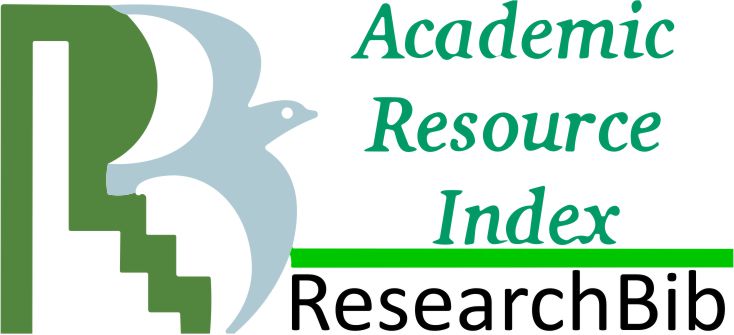DOI
10.21002/jaki.2014.03
Abstract
The literature shows that leniency has negative impact on employee performance and firm productivity. However, there has been limited empirical research of how to mitigate the bias. This study examines if leniency is mitigateable by availability of subjective evaluation criteria and group rater. Using experimental method with sixty-nine undergraduate students as subjects, we find that process within group is effective to reduce individual subjective rating, even when there was no subjective criteria. However, we find group rating does not have effect on rating accuracy. Additionally, consistent with general assumption of leniency, we find that inflated rating is affected by altruistic traits of raters. With the inherent limitations associated with experimental method, our finding suggests that, in order to have subjective rating accurately, firm should promote sound rating process by defining more relevant criteria to complement the evaluation process.
References
Bellavance, F., S. Landry, and E. Schiehll. 2013. Procedural Justice in Managerial Performance Evaluation: Effects of Subjectivity, Relationship Quality, and Voice Opportunity. British Accounting Review, 45, 149-166. 10.1016/j.bar.2013.06.013 Berger, J., C. Harbring, and D. Sliwka. 2010. Performance Appraisals and the Impact of Forced Distribution: An Experimental Investigation. Working Paper, IZA No. 5020: 1-44. Bernardin, H. J., D. K. Cooke, and P. Villanova. 2000. Conscientiousness and Agreeableness as Predictor Rating Leniency Bias. Journal of Applied Psychology, 85 (2), 232-234. 10.1037/0021-9010.85.2.232 Birnberg, J. G. 2009. The Case for Post-Modern Management Accounting: Thinking Outside the Box. Journal of Management Accounting Research, 21, 3-18. 10.2308/jmar.2009.21.1.3 Bol, J. C. 2008. Subjectivity in Compensation Contracting. Journal of Accounting Literature, 27, 1-32. Bol, J. C. 2011. The Determinants and Performance Effects of Managers' Performance Evaluation Biases. The Accounting Review, 86 (5), 1549-1575. 10.2308/accr-10099 Bol, J. C. and S. D. Smith. 2011. Spillover Effects in Subjective Performance Evaluation: Bias and the Asymetric Influence of Controllability. The Accounting Review, 86 (4), 1213-1230. 10.2308/accr-10038 Bosman, R., H. Hennig-Schmidt, and F. Van Winden. 2006. Exploring Decision Making in a Power-to-take Experiment. Experiment Economic, 9, 35-51. 10.1007/s10683-006-4310-9 Breuer, K., P. Nieken, and D. Sliwka. 2013. Social Ties and Subjective Performance Evaluations: An Empirical Investigation. Review Management Science, 7, 141-157. 10.1007/s11846-011-0076-3 Cappel, J. J. and J. C. Windsor. 2000. Ethical Decision Making: A Comparison of Comparison of Computer-supported and Face-to-face Group. Journal of Business Ethics, 28, 95-107. 10.1023/A:1006344825235 Charness, G., E. Karni, and D. Levin. 2007. Individual and Group Decision Making under Risk: An Experimental Study of Bayesian Updating and Violation of First-order Stochastic Dominance. Journal of Risk Uncertainty, 35, 129-148. 10.1007/s11166-007-9020-y Chen, T. Y. 2012. Approaches to Leniency Reduction in Multi-Criteria Decision Making with Interval-Valued Fuzzy Sets and an Experimental Analysis. International Journal of Information Technology & Decision Making, 11 (3), 579-605. 10.1142/S0219622012500125 Chen, C. X., M. G. Williamson, and F. H. Zhou. 2012. Reward System Design and Group Creativity: An Experimental Investigation. The Accounting Review, 87 (6), 1885-1911. 10.2308/accr-50232 Chen, J. V. and K. Linn. 2012. User Satisfaction with Group Decision Making Process and Outcome. Journal of Computer Information Systems, 52 (4), 30-40. Festinger, L. 1957. A Theory of Cognitive Dissonance. Evanston, IL: Row & Peterson. Galin, A. 2013. Endowment Effect in Negotiations: Group versus Individual Decision Making. Theory Decision, 75, 389-401. 10.1007/s11238-012-9350-3 Gibbs, M., K. A. Merchant., W. A. Van der Stede, and M. E. Vargus. 2004. Determinants and Effects of Subjectivity in Incentives. The Accounting Review, 79 (2), 409-436. 10.2308/accr.2004.79.2.409 Gibson, L. B. and P. C. Earley. 2007. Collective Cognition in Action: Accumulation, Interaction, and Accomodation in the Development and Operation of Group Efficacy? Academy of Management Review, 32 (2), 438-458. 10.5465/AMR.2007.24351397 Giebe, T. and O. Gürtler. 2012. Optimal Contract for Lenient Supervisors. Journal of Economic Behavior and Organization, 81, 403-420. 10.1016/j.jebo.2011.11.003 Golman, R. and S. Bhatia. 2012. Performance Evaluation Inflation and Compression. Accounting, Organizations and Society, 37, 534-543. 10.1016/j.aos.2012.09.001 Grund, C. and J. Przemeck. 2012. Subjective Performance Appraisal and Inequality Aversion. Applied Economics, 44, 2149-2155. 10.1080/00036846.2011.560109 Hair, J. F. Jr., W. C. Black., B. J. Babin, and R. E. Anderson. 2010. Multivariate Data Analysis. A Global Perspective. Upper Saddle River, NJ: Pearson Education. Huang, W. and D. Li. 2007. Opening up the Black Box in GSS Research: Explaining Group Decision Outcome with Group Process. Computers in Human Behavior, 23, 58-78. 10.1016/j.chb.2004.03.036 Hartono, J. 2013. Pedoman Survei Kuisioner: Mengembangkan Kuisioner, Mengatasi Bias dan Meningkatkan Respons. Yogyakarta: BPFE UGM. Kingstrom, P. O. and L. E. Mainstone. 1985. An Investigation of the Rater-ratee Acquintance and Rater Bias. Academy of Management Journal, 85 (3), 641-653. 10.2307/256119 Kocher, M. G. and M. Sutter. 2007. Individual versus Group Behavior and the Role of Decision Procedure in Gift-Exchange Experiment. Empirica, 34, 63-88. 10.1007/s10663-006-9026-8 Liedtka, S. L., B. K. Church, and M. R. Ray. 2008. Performance Variability, Ambiguity Intolerance, and Balanced Scorecard-based Performance Assessments. Behavioral Research in Accounting, 20 (2), 73-88. 10.2308/bria.2008.20.2.73 Lin, C. W., C. S. Lin., P. C. Huang, and Y. L. Wang. 2014. How Group Efficacy Mediates the Relationship between Group Affect and Identification. Journal of Business Research, 67, 1388-1394. 10.1016/j.jbusres.2013.08.014 Lowe, D. J., P. M. Reckers, and S. M. Whitecotton. 2002. The Effects of Decision-Aid Use and Reliability on Jurors' Evaluation of Auditor Liability. The Accounting Review, 77 (1), 185-202. 10.2308/accr.2002.77.1.185 Maas, V. S. and R. Torres-González. 2011. Subjective Performance Evaluation and Gender Discrimination. Journal of Business Ethics, 101, 667-681. 10.1007/s10551-011-0763-7 Martell, R. F. and M. R. Borg. 1993. A Comparison of the Behavioral Rating Accuracy of Groups and Individuals. Journal of Applied Psychology, 78, 43-50. 10.1037/0021-9010.78.1.43 Martell, R. F. and K. N. Leavitt. 2002. Reducing the Performance-Cue Bias in Work Behavior Ratings: Can Groups Help? Journal of Applied Psychology, 87 (6), 1032-1041. 10.1037/0021-9010.87.6.1032 Moers, F. 2005. Discretion and Bias in Performance Evaluation: The Impact of Diversity and Subjectivity. Accounting, Organizations and Society, 30, 67-80. 10.1016/j.aos.2003.11.001 Nahartyo, E. 2012. Desain dan Implementasi Riset Eksperimen, Edisi 1. Yogyakarta: UPP STIM YKPN. Prendergast, C. and R. H. Topel. 1996. Favoritism in Organization. Journal of Political Economy, 104 (5), 958-978. 10.1086/262048 Roch, S. G. 2006. Discussion and Consensus in Rater Groups: Implications for Behavioral and Rating Accuracy. Human Performance, 19 (2), 91-115. 10.1207/s15327043hup1902_1 Rushton, J. P., R. D. Chrisjohn, and G. C. Fekken. 1981. The Altruistic Personality and the Self-report Altruism Scale. Personality and Individual Differences, 2, 293-302. 10.1016/0191-8869(81)90084-2 Simmons, H. A. 1993. Altruism and Economics. The American Economic Review, 83 (2), 156-181. Simmons, R. G. 1991. Altruism and Sociology. Sociological Quarterly, 32, 1-22. 10.1111/j.1533-8525.1991.tb00342.x Slaughter, J. E. and J. G. Greguras. 2008. Bias in Performance Ratings: Clarifying the Role of Positive versus Negatif Escalation. Human Performance, 21, 414-426. 10.1080/08959280802347213 Staw, B. M. 1975. Attribution of the "Causes" of Performance: A General Alternative Interpretation of Cross-sectional Research on Organizations. Organizational Behavior and Human Performance, 13, 414-432. 10.1016/0030-5073(75)90060-4 Van der Stede, C. W., C. W. Chow, and T. W. Lin. 2006. Strategy, Choice of Performance Masures, and Performance. Behavioral Research in Accounting, 18, 185-205. 10.2308/bria.2006.18.1.185 Varma, A. and S. Pichler. 2007. Interpersonal Affect: Does It Really Bias Performance Appraisal. Journal of Labour Research, 28 (2), 207-222. Wherry, R. J. and C. J. Bartlett. 1982. The Control of Bias Ratings: A Theory of Rating. Personnel Psychology, 35, 521-552. 10.1111/j.1744-6570.1982.tb02208.x Wright, E. F. and G. L. Wells. 1985. Does Group Discussion Attenuate the Dispositional Bias? Journal of Applied Social Psychology, 15, 531-546.
Recommended Citation
Handojono, Monika and Sholihin, Mahfud
(2014)
"BAGAIMANA MENGURANGI BIAS KEMURAHAN HATI DALAM PENILAIAN KINERJA SUBJEKTIF? SEBUAH PENDEKATAN EKSPERIMEN,"
Jurnal Akuntansi dan Keuangan Indonesia: Vol. 11:
No.
1, Article 3.
DOI: 10.21002/jaki.2014.03
Available at:
https://scholarhub.ui.ac.id/jaki/vol11/iss1/3












